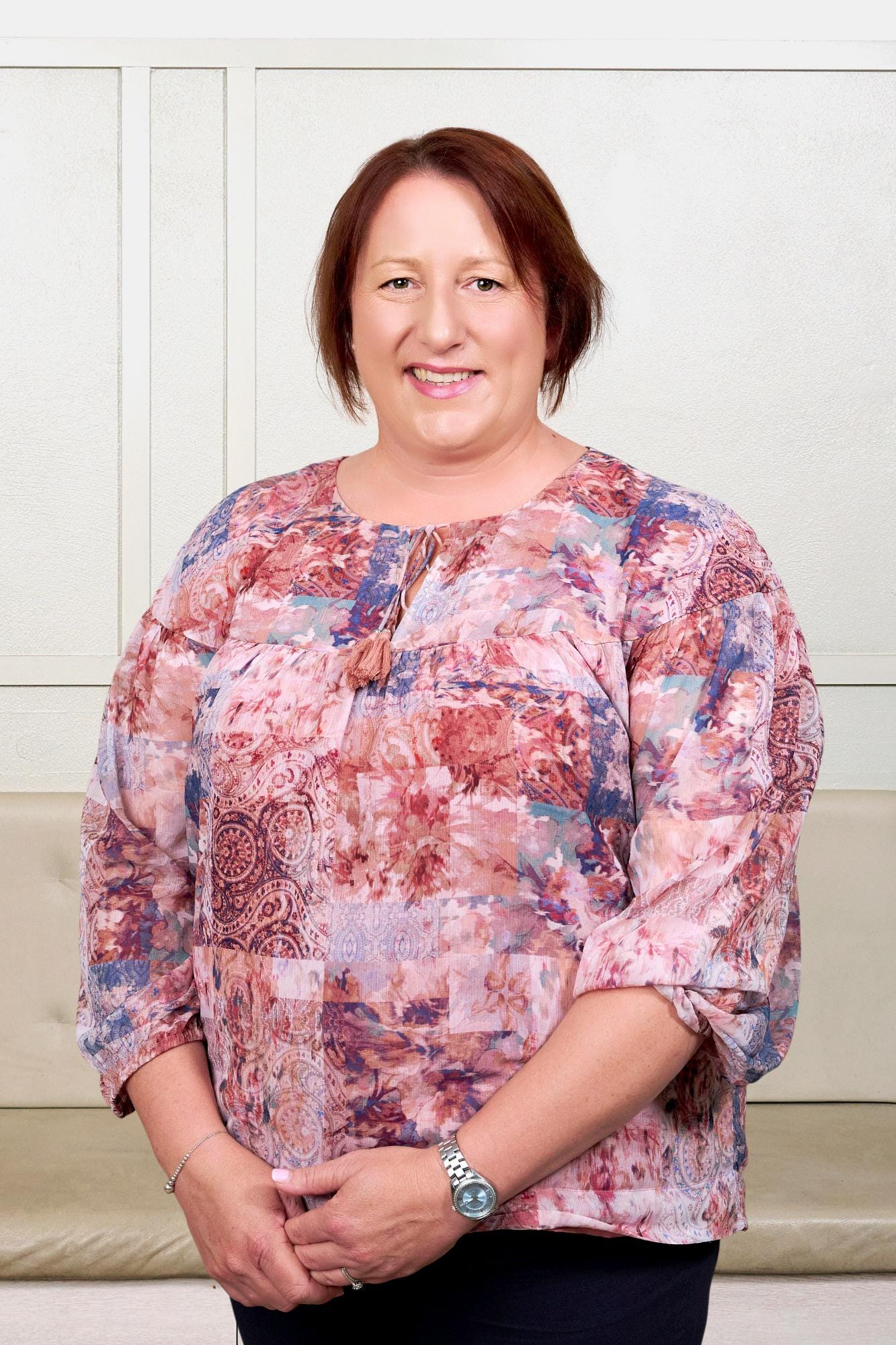Choosing the Right Executor for Your Australian Estate: Responsibilities and Considerations
An executor plays a crucial role in administering a deceased estate in Australia. This individual is responsible for ensuring that the deceased’s wishes, as outlined in their will, are carried out lawfully and efficiently. The role involves handling legal, financial, and administrative duties, which can be complex and time-consuming. Selecting the right executor is essential to ensure the smooth distribution of assets and to minimise the risk of disputes or delays.


Wills and Estate Services:
Our Wills and Estate Lawyers are here to help. Contact us for support.
Responsibilities of an Executor
An executor is entrusted with significant responsibilities that require diligence, organisation, and legal awareness to effectively manage the estate of a deceased person. Their role includes identifying and securing assets, paying outstanding debts and taxes, and ensuring that the distribution of the estate aligns with the terms of the will. Executors must also navigate legal requirements, such as obtaining probate and complying with relevant state or territory laws, to avoid potential disputes or liabilities. In addition, they may need to liaise with beneficiaries, financial institutions, and legal professionals to fulfil their duties efficiently. Given the complexity of the role, careful selection of a trustworthy and capable executor is crucial to ensuring the smooth administration of an estate.
Duties of an Executor
The primary duties of an executor include:
Obtaining probate if required
Identifying and securing estate assets
Paying outstanding debts and liabilities
Distributing assets to beneficiaries as per the will
In some cases, the executor may also need to handle legal claims against the estate, liaise with solicitors and financial institutions, and manage tax obligations. These responsibilities require a high level of competence and trustworthiness.
Legal and Financial Aspects
Executors must navigate a range of legal and financial complexities to ensure the proper administration of an estate. This includes complying with state-based succession laws, which govern how estates are managed and distributed, particularly in cases where disputes arise. They are also responsible for managing taxation matters, such as capital gains tax on estate assets, income tax obligations, and ensuring that any outstanding debts are settled before distributing the estate. Additionally, executors must maintain accurate financial records, documenting all transactions and estate-related activities to provide transparency and accountability. Failure to fulfil these obligations correctly can result in legal disputes with beneficiaries or creditors, and in some cases, the executor may face personal liability for any financial mismanagement or non-compliance with legal requirements.
Summary Points:
Executors must carry out legal and financial duties in accordance with the law.
The role involves probate application, asset management, and debt repayment.
Legal advice can help an executor navigate complex estate matters.
Who Can Be an Executor?
Eligibility and Suitability
In Australia, an executor can be a trusted family member or friend, a solicitor or accountant, or a professional trustee company. While there are no formal qualifications required for the role, it is essential that the chosen individual is reliable, impartial, and capable of handling the administrative and legal responsibilities involved in estate management. Executors are tasked with duties such as applying for probate, managing and distributing assets, settling outstanding debts and taxes, and ensuring that the deceased’s wishes, as outlined in the will, are properly carried out. Given the complexity of these obligations, selecting an executor with strong organisational skills and a sound understanding of legal and financial matters can help ensure the efficient administration of the estate and minimise potential disputes among beneficiaries.
Choosing Between Family, Friends, or Professionals
Many people appoint family members or close friends as executors, but professional executors may be more suitable for complex estates. A professional executor can offer expertise and impartiality, reducing the risk of family conflicts. However, professional executors charge fees for their services, which should be considered when making a decision.
Summary Points:
An executor can be a family member, solicitor, or trustee company.
Consider the complexity of the estate before appointing an executor.
Professional executors may help avoid disputes but may charge fees.
Potential Challenges for Executors
Disputes and Legal Risks
Executors may face disputes from beneficiaries, particularly in cases where there are concerns about fairness, clarity, or legal compliance. Family provision claims are a common source of conflict, as eligible individuals may contest the will if they believe they have not been adequately provided for. Disputes can also arise when a will is unclear, outdated, or poorly drafted, leading to differing interpretations among beneficiaries and potential legal challenges. Additionally, allegations of executor misconduct, such as mismanagement of estate assets or failure to act impartially, can lead to serious legal consequences and delays in estate administration. Proper estate planning, including regularly updating the will, clearly outlining asset distribution, and appointing a competent executor, can help minimise conflicts and ensure the deceased’s wishes are carried out smoothly.
Managing Time and Responsibilities
Administering an estate can take months or even years, depending on its complexity. Executors need to manage their time efficiently, balancing estate duties with personal commitments. If an executor is unable or unwilling to perform their role, they can renounce their appointment before taking any action on the estate.
Summary Points:
Executors may face disputes from beneficiaries.
Estate administration can be time-intensive and complex.
Executors can renounce their role if they cannot fulfil the duties.
How to Appoint an Executor
Process of Appointment
The appointment of an executor is made through a legally valid will, ensuring that a trusted individual or entity is responsible for administering the estate after the testator’s passing. When selecting an executor, the testator should carefully consider the person’s ability to manage financial and legal matters, their availability to dedicate time to the role, and their willingness to accept the responsibilities involved. Given the complexities of estate administration, testators may choose to appoint multiple executors, allowing them to share duties and reduce the burden on a single individual. This can be particularly beneficial in cases involving large or complex estates, as co-executors can collaborate to ensure compliance with legal requirements and efficient estate distribution. However, clear communication and coordination between executors are essential to avoid potential conflicts and ensure a smooth administration process.
Updating Executor Appointments
Life circumstances change, and it is advisable to review and update the executor appointment when necessary. A codicil (an amendment to a will) or drafting a new will can reflect updated preferences.
Summary Points:
Executors are appointed in a legally valid will.
Consider appointing multiple executors for shared responsibilities.
Regularly review and update executor appointments as needed.

Estate Planning Insights:
- Avoiding Common Pitfalls in Australian Estate Planning: Tips from Legal Experts
- The Importance of Updating Your Will: Keeping Your Estate Plan Current in Australia
- Comprehensive Estate Planning in Australia: Essential Steps and Legal Requirements
- Choosing the Right Executor for Your Australian Estate: Responsibilities and Considerations

Estate Planning Service:
Choosing the Right Executor for Your Australian Estate: Key Considerations
Selecting an executor requires assessing their reliability, legal knowledge, and ability to manage estate responsibilities efficiently.
Trustworthiness and Competence
Choose someone who is honest, organised, and capable of managing financial and legal responsibilities with diligence. An executor should have the ability to handle estate administration tasks efficiently, ensuring all legal obligations and beneficiary interests are properly managed.
Potential Conflicts of Interest
Avoid appointing an executor who may have personal disputes with beneficiaries, as this could lead to unnecessary tension or legal challenges. Selecting a neutral and fair-minded individual helps maintain smooth estate administration and minimises the risk of disputes.
Professional Support
Consider professional executors if the estate is complex or if impartiality is required to ensure fair and legal distribution of assets. Professional executors, such as solicitors or trustee companies, bring expertise in estate administration and can navigate legal complexities with objectivity.
Choosing the Right Executor for Your Australian Estate FAQs
Can an executor refuse to act?
Yes, an executor can renounce their role before taking any steps to administer the estate. This is done by filing a formal renunciation with the court, provided they have not already started acting in the role. If an executor refuses, an alternate executor named in the will can step in to take on the responsibilities. If no alternate is available, the court may appoint an administrator to handle the estate’s affairs.
Does an executor get paid in Australia?
Executors who are also beneficiaries usually do not receive additional compensation for their duties. However, if an executor is not a beneficiary or their role involves significant time and effort, they may apply for executor’s commission. The amount of commission is not fixed and must be approved by the court, based on factors such as the complexity of the estate and the executor’s level of involvement. Professional executors, such as solicitors or trustee companies, may charge fees as part of their service.
What happens if an executor mismanages the estate?
If an executor fails to fulfil their duties properly, they may be held legally accountable for any financial loss or harm caused to the estate. Beneficiaries or interested parties can apply to the court to have the executor removed and replaced if misconduct is proven. In serious cases, the executor may be required to compensate the estate for any losses resulting from their mismanagement. Legal action against an executor can arise from delays, conflicts of interest, or failure to distribute assets according to the will.
Can I appoint more than one executor?
Yes, multiple executors can be appointed to share responsibilities in managing an estate. Co-executors must work together to make decisions, sign documents, and carry out estate administration tasks. While this can help distribute the workload, it can also lead to disagreements if the executors have conflicting opinions. To avoid potential disputes, it is important to choose executors who can collaborate effectively or consider appointing a professional executor as a neutral third party.
How can I change my executor?
You can change your executor by making a new will or adding a codicil (a legal amendment) to your existing will. It is essential to clearly state the replacement executor and revoke the previous appointment to avoid confusion. Seeking legal advice is recommended to ensure that the changes comply with legal requirements and prevent disputes after your passing. Regularly reviewing your will, particularly after significant life events, can help ensure your chosen executor remains the best fit for your estate.
Our Wills and Estate Experience
Our Wills and Estate team is dedicated to guiding clients through important life planning decisions with professionalism and care. We specialise in drafting wills, contesting wills, estate planning, guardianship orders, power of attorney, and probate applications.
With offices in the Southern Highlands, Macarthur Region, and the Illawarra, we are a full-service law firm, proud to assist clients across Australia. Our experienced team provides clear, practical advice and tailored solutions to help you protect your legacy and secure the future for your loved ones.
Recognised Excellence in Law and Service
Our award-winning law firm is celebrated for outstanding achievements in business and legal services. With numerous accolades, we are committed to delivering unparalleled expertise and client satisfaction.

Your Wills and Estate Legal Team
Our award-winning law firm is celebrated for outstanding achievements in business and legal services. With numerous accolades, we are committed to delivering unparalleled expertise and client satisfaction.

Sara Price
Accredited Specialist (Wills & Estates)
Sara Price is a highly experienced and accredited specialist in Wills & Estates, with over a decade of expertise in estate planning...
Read more

Grace Slater
Solicitor
Grace has worked in the legal industry for over 10 years. She completed a Bachelor of Laws and Bachelor of Arts...
Read more

Connie Marks
Solicitor
Connie Marks is a dedicated and compassionate solicitor with a strong foundation in Wills & Estates and Property...
Read more
See more:

Your Family - Our Family Lawyers
Our Family Law team is committed to supporting clients through complex family matters with professionalism and care. We specialise in property settlements, Parenting Arrangements, divorce, spousal maintenance, and more.

Secure Their Future, Embrace Your Legacy
Our Wills & Estates team will secure your future through comprehensive estate planning. Our accredited expert services include drafting and contesting wills, creating tailored estate plans, arranging guardianship orders, and more.

Supporting Businesses Big and Small.
Our business and commercial law team are ready to offer comprehensive support to help your enterprise thrive. Our services include drafting contracts and agreements, managing business sales and purchases, negotiating commercial leases and more.
Disclaimer: Any information found in articles or pages on our website is for general guidance only and should not be considered legal advice. For advice tailored to your specific situation, please contact us directly to speak with one of our qualified legal professionals.

Feel secure with our compassionate, client-first approach, ensuring your needs are met with care.

Easily accessible, local offices with real teams, ready to provide hands-on support.

Named among the top firms in the Southern Highlands and the Wollondilly, we bring award-winning expertise to every case.

Benefit from a dedicated team working together to deliver results tailored to your needs.









